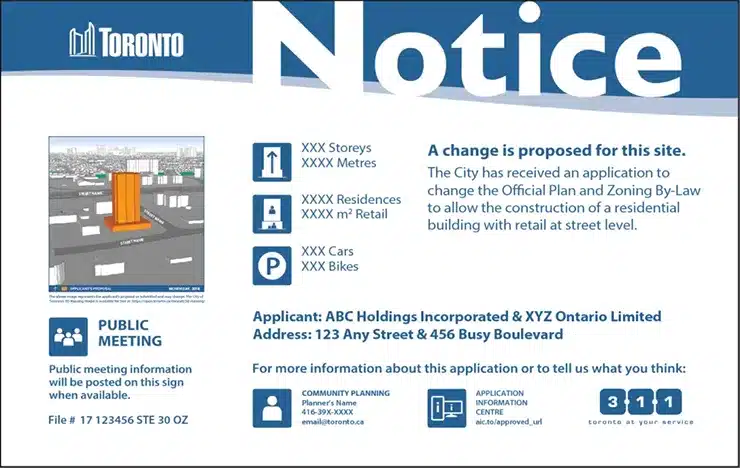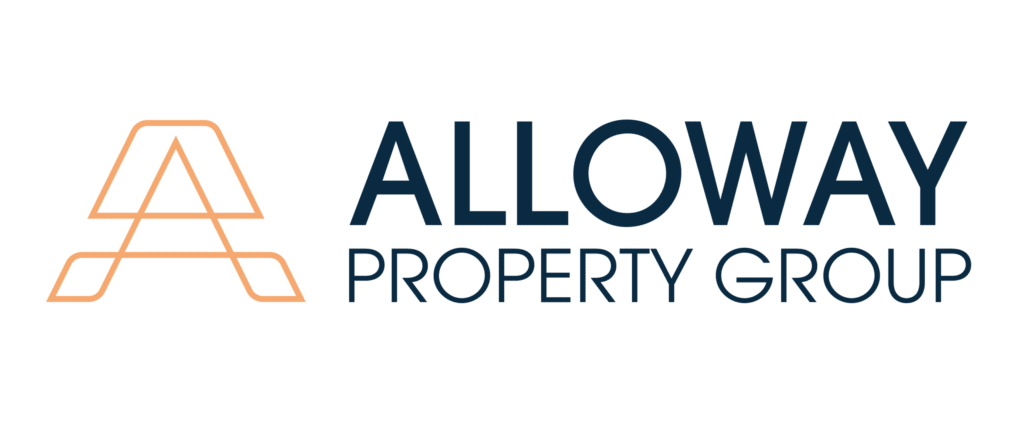When looking to buy Toronto Real Estate, the topic of zoning by-laws is one that cannot be overlooked. These sets of rules govern the use for land in an area. Amendments, changes, and revisions can all have a significant impact on the value of a piece of property.
In this guide, we will provide a brief introduction to Toronto zoning by-laws, explain their function, and provide some guidance as to how be aware of zoning by-laws and their changes around you.
On This Page
What is a Zoning By-Law?
A Zoning By-Law is the application of urban planning by restriction of land use through municipality-controlled laws.
While that definition might sound confusing, zoning by-laws are actually quite simple. Let’s take a look by breaking the term down to its fundamental parts.
The Official Plan
The concept of zoning has been in existence for quite some time. The Planning Act requires municipalities to regulate land use within their jurisdiction. The city must develop an Official Plan. The purpose of this plan is to provide a framework growth pattern and a plan for land use within the city. Municipalities must review the plan every 5 years, and amend it to meet the current needs of the city.
The Official Plan divides land into pre-determined areas, or “zones”. Planners balance the inputs of professionals, city councilors, and overall public consensus to set allowable land use within these zones.
By-Law
A By-Law is a self-regulating rule passed by a local authority. Cities have the authority to enforce by-laws through legislation granted in The Planning Act. Zoning by-laws enforce the city’s Official Plan.
How do I Find the Zoning for my Property?
The easiest way to find the zoning on a property in Toronto is through the City of Toronto Interactive Zoning By-Law Map.

A simple search of your address will reveal the colour-coded zoning information affecting your property. Clicking in this region will reveal the zoning code.

Hyperlinks will take you to the specific zoning by-law chapter, outlining all the regulations, conditions, and exceptions (if any).
What if my Property isn’t Listed?
A historical Zoning By-Law may regulate your property. The interactive map only covers properties under By-Law 569-2013.
To check the zoning for these regions, contact the City of Toronto Planning Department. (Be sure to contact planners in your ward).
Check Compliance with Zoning and Building Requirements
There may be cases in which the zoning for a particular region has been amended or re-zoned. As such, the use or construction of your building may not comply with the current zoning regulations. A previous owner may have also applied for a minor variance or by-law amendment (See below). A Legal Non-Conforming designation may apply.
Zoning by-laws also are changed regularly, and a neighbour’s application to change the by-law may have affected your property. For example, the city adopted a new Multiplex Zoning By-Law allowing up to four units in properties city-wide.
The best way to ensure compliance with building codes as well as zoning by-laws is by obtaining a Property Information Report from the City of Toronto. This report outlines the current zoning By-Law and code affecting the property, as well as compliance with Ontario Building Codes, and Property Standards By-Laws (if applicable). The letter costs $198.59 and is available through the linked application portal.
Changes to the Toronto Zoning By-Law
There are times when a property owner’s plans don’t align with the city’s zoning. Perhaps there is a desire to build the property slightly larger than the allowable size, or slightly closer to the street. Other times, a property owner might wish to change the use of the property completely. In both cases, a property owner may apply to work with the property outside of the confines of the By-Law.
For minor modifications, a property owner may choose to apply to Committee of Adjustment for a Minor Variance. Examples of common Minor Variances are:
- exceeding the gross floor area,
- building beyond setbacks, or
- addition of a structure or additional dwelling unit beyond allowance
However, if the variance to the By-Law is deemed major, the owner would be forced to apply for a Zoning By-Law Amendment. These are far more complex in nature, and planning consultation is usually required. Applications usually involve a Public Hearing, consultation with staff planners, and other forms of review. The Municipality typically charges a fee for this service based on a set fee schedule.

The City must only approve By-Law Amendments in accordance with the Official Plan.
Passing a Zoning By-Law
Prior to passing a new zoning by-law, city council must give notice and hold a public meeting. Meetings require 20 days notice at minimum. The notice can be via posting or via public medium (mail, newspaper, etc). Mediation paths are in place for those that disagree with the new by-law, and the Planning Act encourages residents to get involved early as well as make submissions during the review process.
Successful passing of by-law amendments are accompanied by 15 days notice. Should a resident disagree with the new by-law, residents can file a Notice of Appeal to the Ontario Municipal Board (or the Local Planning Appeal Tribunal…whichever applies in the jurisdiction).
How Catalyst Makes the Process Different
Toronto Zoning By-Laws are a complex and diverse legal topic. As a property owner, its important to remain up-to-date with changes in your area, adjacent properties, and results of Official Plan Review. Property zoning runs to the core of its value, since zoning dictates the highest and best use.
Catalyst’s unique strategy of pairing an agent with a lawyer from day 1 of your Real Estate Journey is invaluable in situations where zoning affects value. Our agents ability to provide top service combined with expert legal opinion provides unmatched value in the Real Estate industry.
If you’re looking to purchase a property, and have questions regarding its Zoning By-Law, or are concerned with how recent zoning by-law changes could affect your property values, Contact Us for a free consultation. Our expert team of Agents and Lawyers are ready to assist you with your inquiry.

Hello,
I bought a property zoning RD(f15;a550*5) without doing due diligence.
I’m very concerned about all the restrictions related for this site specifics.
What criteria made a property be a “site specific”?
Thank you.
The Zoning by-law would cover the entire property unless there was a special by-law that exempts the property, a portion of the property, or a specific use. In general, municipalities may also let you convert a property back to a prior zoning issuance, provided that it conforms with their official plan. (for example, a home that was once an office, could possibly be converted back to an office). Hope this helps.